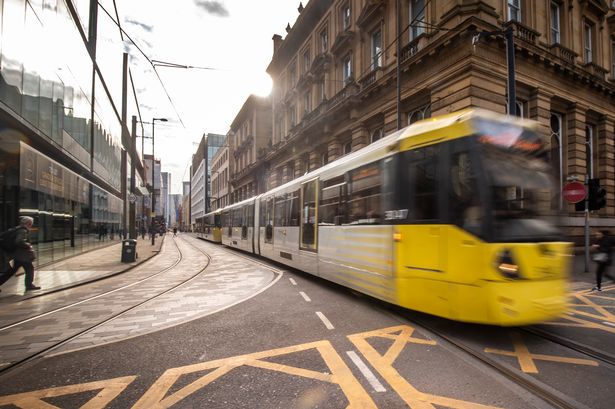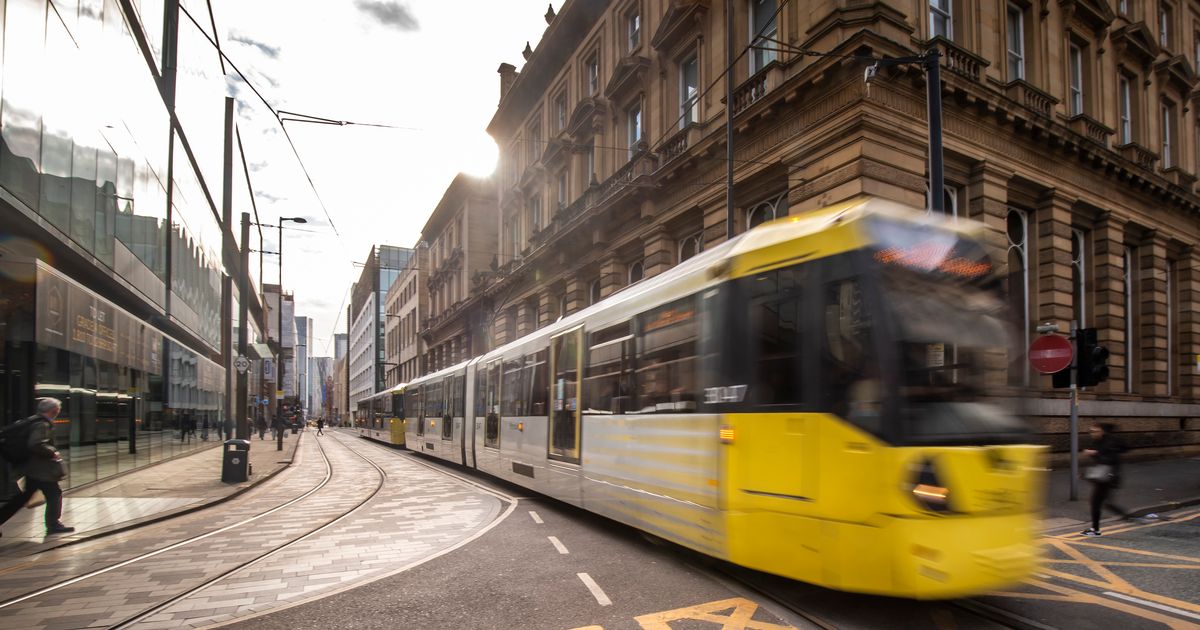The investment will improve transport infrastructure across the region Bristol could soon get a tram system similar to the one in Manchester (Photo by Anthony Devlin/Getty Images)
Bristol could soon get a tram system similar to the one in Manchester (Photo by Anthony Devlin/Getty Images)
Trams and light rail are “on the table” for Bristol following a major boost for the city’s hopes of a mass transit system.
The Treasury will today (June 4) announce almost £800million of transport funding for the South West – £200million of which will be for developing some sort of mass transit network.
The investment will improve rail infrastructure across the region, including funding to support WECA’s ambitions for increased frequency of services between Brabazon and the city centre.
Funding is also allocated for mass transit development between Bristol, Bath, South Gloucestershire and North Somerset.
The boost to the region comes as Chancellor Rachel Reeves announces billions of pounds of investment in public transport.
The £15.6 billion package for mayoral authorities is expected to include funding to extend the metros in Tyne and Wear, Greater Manchester and the West Midlands, along with a renewed tram network in South Yorkshire and a new mass transit systems in West Yorkshire.
Announcing the investment in a speech in Manchester today, the Chancellor will argue that Britain “cannot rely on a handful of places forging ahead of the rest of the country” and champion a “new economic model – driven by investment in all parts of the country”.
Helen Godwin, the Labour mayor of the West of England, said: “Our region has a strong economy overall, but we know that congestion has held the West of England back from achieving its full potential.
“We’ve been stuck in the slow lane on transport for too long. Our potential additional contribution to the national economy is enormous.
“I promised to work with government and get the West of England moving. Three-quarters of a billion pounds of new money for transport will do just that, as we start a new chapter for our region.
“Together, we need to accelerate plans to secure better buses, deliver more trains and railway stations, and give local people proper alternatives to their cars. Trams, Metrobuses, rail, light rail, and guided buses are all on the table to make that a reality.
“Over the years, as a region, we’ve talked too much about mass transit and delivered too little. It’s finally time to deliver a mass transit system that people can rely on. Working with the new government, and with genuine collaboration between local councils, it’s time for real change.”
Ms Godwin is understood to be sharing more information on her plans to spend the cash today.
However, it is understood that in addition to the £200million on mass transit there will be £150million invested in local rail to increase the frequency of services between the new Brabazon development and the city centre.
The word “underground” – the pet project of former Bristol mayor Marvin Rees – was noticeably absent from any communications from either the Treasury and Ms Godwin.
Last month, Bristol Live reported how upcoming changes to several junctions in the city centre will lay an “unbroken” path for a potential new tram line.
The route would stretch from the Long Ashton park and ride south-west of Bristol, through the city centre, and then up the M32, almost completely separated from traffic.
Over the next couple of years, major roadworks will take place on the Bedminster Bridges roundabout, the Redcliffe roundabout, Union Street, the Haymarket and Bond Street.
These will allow the Metrobus M2 service to be extended and never get held up in queues of cars.
Looking ahead, this “red route” would then be ideal for the first line of a mass transit network, according to transport bosses at Bristol City Council.
However, the £200million figure would not likely be enough to build a mass transit system on its own.
In comparison, the 8.7mile Nottingham tram system cost around £200 million to construct in 2004 .
The West’s money came as part of a wider £15.6billion package of cash for transport in the regions.
It is expected to include funding to extend the metros in Tyne and Wear, Greater Manchester and the West Midlands, along with a renewed tram network in South Yorkshire and a new mass transit systems in West Yorkshire.
